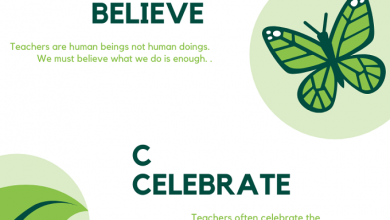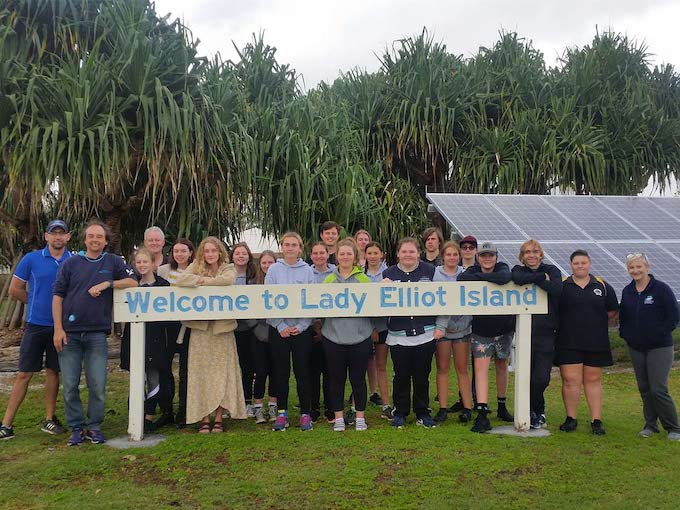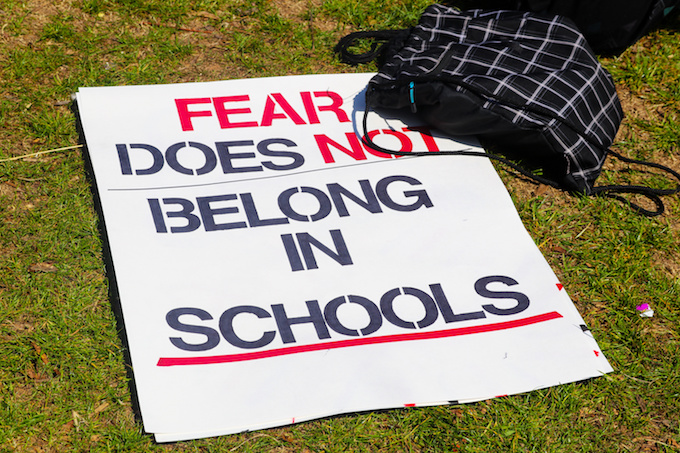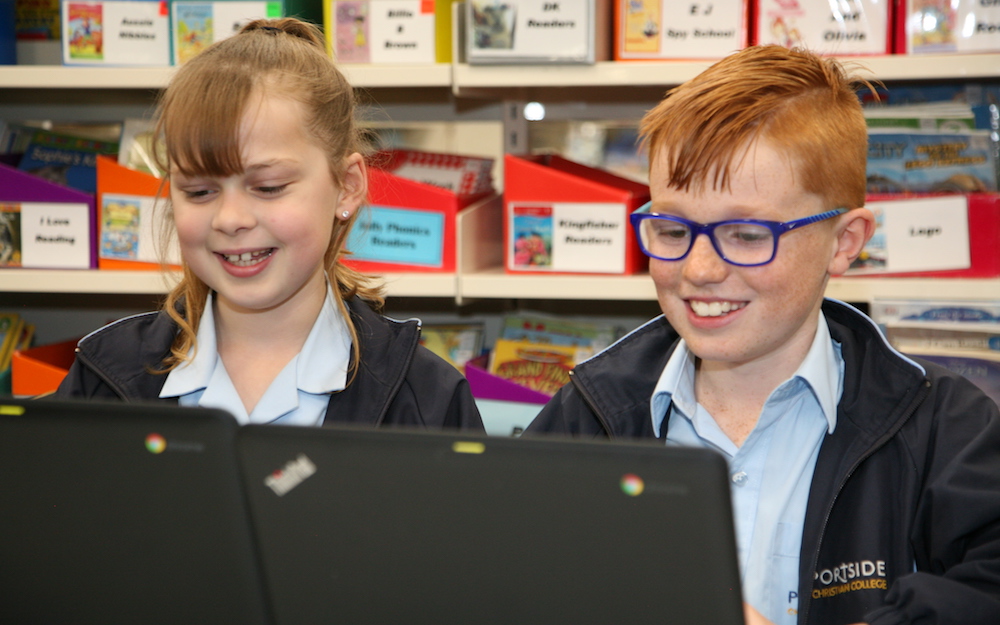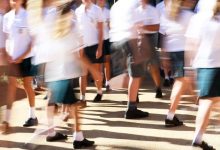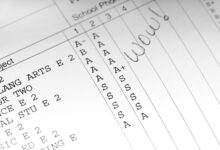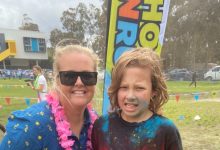Authors in Schools: what’s it really like?
The highs and lows of making a living from events in schools.
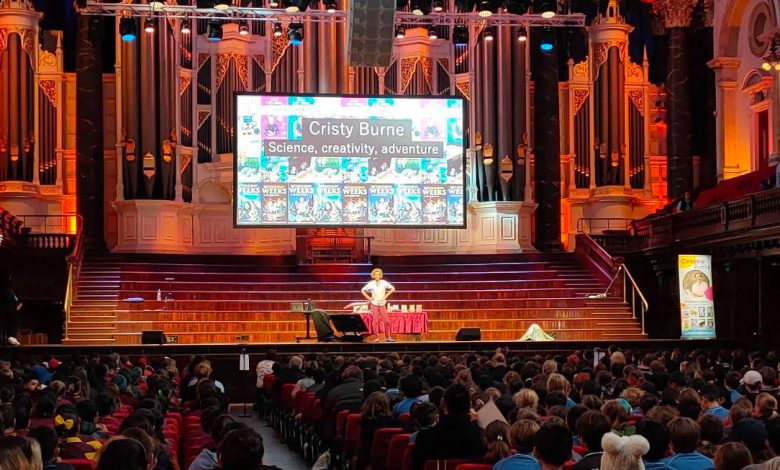
If you asked a class of Year 3s to suggest some obscure careers, you’d probably not even come close to the esoteric trajectory of children’s author, Cristy Burne.
“My career covers six countries, three degrees, and jobs that include magazine editing at CERN (home of the Large Hadron Collider!), exploding things (as part of a science circus!), and rubbish collecting (I donated my early mornings to science),” she explains.
For the past 16 years though, Cristy has been writing award-winning books for children, from junior fiction Into the Blue, graphic novels such as Ultra Violet: Down to Business, and narrative non-fiction Aussie STEM Stars: Suzy Urbaniak – STEAM Warrior and Volcano Hunter. Ever since that first book was released, Cristy has also been presenting in schools, from tiny regional communities to enormous auditorium events.
“It’s no exaggeration to say that I spend months preparing each year. I work hard to create a unique connection with each audience: it’s always about the people in the room, not the person on the stage. I’m in the extremely lucky position of being a full-time speaker and writer, so I have the luxury of working on my content and experimenting with different stories, different messages and different science demos to make sure I’m bringing my best to every event,” adds Cristy.
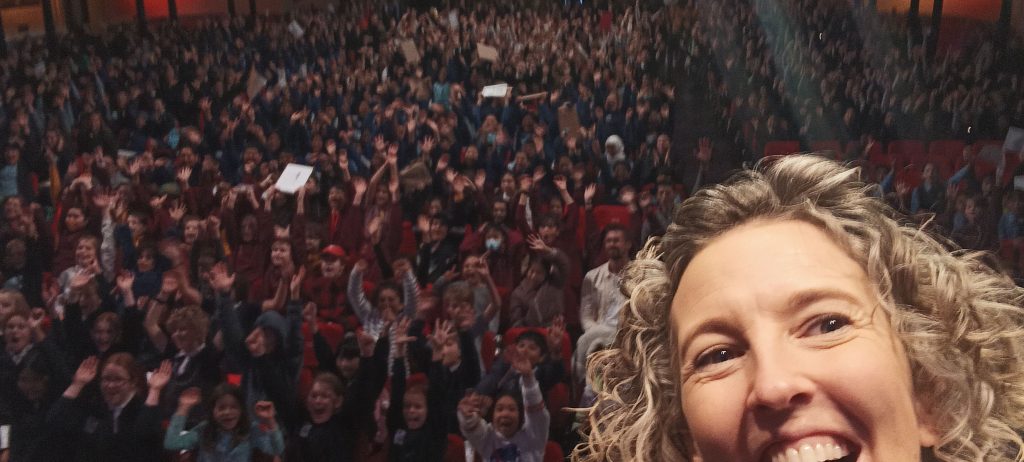
Supplementing stories
As much as we might want to imagine children’s authors in brightly coloured treehouses, doing nothing more than plotting their next book, the reality is that many need to supplement their incomes with author events and school talks.
“Author talks and events are an essential part of my income,” says James Foley, the award-winning author of books like Stellarphant and Secret Agent Mole. “They make up 50-90% of my annual income, depending on the total from royalties, licensing fees, etc each year, which are much less consistent.”
“I’ve been doing author talks since 2009. I think I had a single session in that first year, and I now do about 7 or 8 weeks of talks in term 3 every year, plus more talks and festivals throughout the year,” he adds.
Deb Fitzpatrick is the author of nine books for young people, including her latest Kelpie Chaos and two books in the Aussie STEM Star series. She agrees that presentations are an essential part of her income.
“The presenting component makes up anywhere from 50 to 75 per cent of my annual income and I am very grateful for that. More than that, though, author talks, festivals and workshops allow me to encourage young people in their own creative expression and give me the opportunity to share my work more broadly. This latter part translates into royalties and library lending rights.”
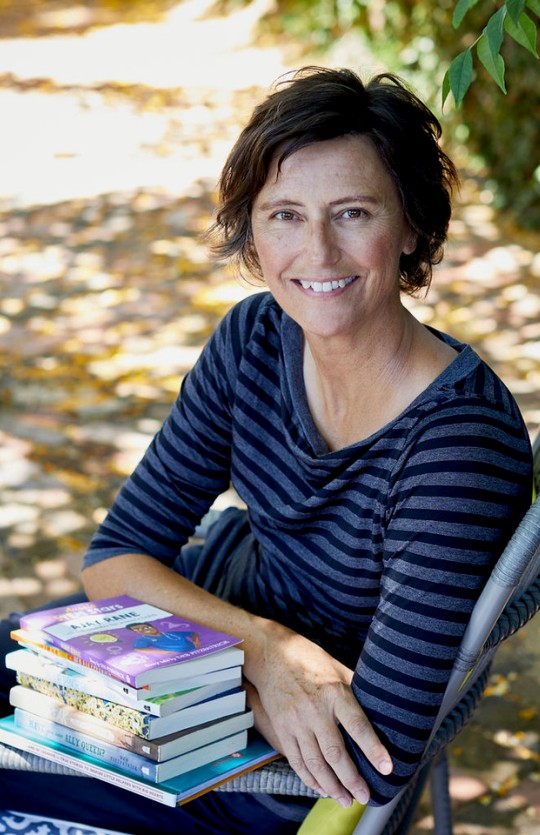
Related article: What is ELR and PLR
Sharing the love
But while vital for putting food on the table for all authors, working in schools is more about bringing a love of words and books to kids of all ages.
“My favourite part about speaking with kids is connecting with them,” admits Deb.” I would love them to come away from a session knowing that adults care about what they think and feel, and that we want to know more. I absolutely love encouraging young people in their own creative pursuits. When I see that I’m engaging the kids in front of me, seeing them listening and interested, sometimes taking notes or scribbling ideas down, I feel like I’m making a (small) contribution to their lives. It’s the best thing ever!”
James agrees: “Making them laugh is the best thing ever; making them feel inspired to go back to class and make their own stories and illustrations. Their instant feedback inspires me too.”
For Cristy, working with children is about sharing her love of science with a new generation, not just her own books.
“On stage, I blend science and story to find fun, inspire innovation and create positive change, and help teachers with their vitally important work. I am very happy to collaborate to achieve the specific outcomes. Sometimes that’s creating a buzz or spreading enthusiasm for reading and science. Other times it’s working on a specific writing skill or providing a safe space to create.”
But as any educator would know, children aren’t always the easiest crowd.
“Sensing that kids wish they were anywhere but in front of you can be tough,” admits Deb. “I remind myself that it’s not personal! But invariably you will have at least several young people who are genuinely interested, and that’s enough for me.”
“Most of my school talks are booked for term 3, which is also cold and flu season,” adds James. “At times it can feel a bit like Russian Roulette.”
Authors can have a deep impact on students, and whether teachers realise it or not, many children reach out to authors after events.
“Sometimes a child will email me in the days or weeks following the event and keep emailing…,” says Cristy. “Sometimes it can be years later that someone writes or reaches out.”
James adds: “Sometimes I get drawings given to me by kids and sometimes their parents contact me afterwards to say how their child’s writing or reading or drawing has improved after my talk. That’s always amazing to hear.”
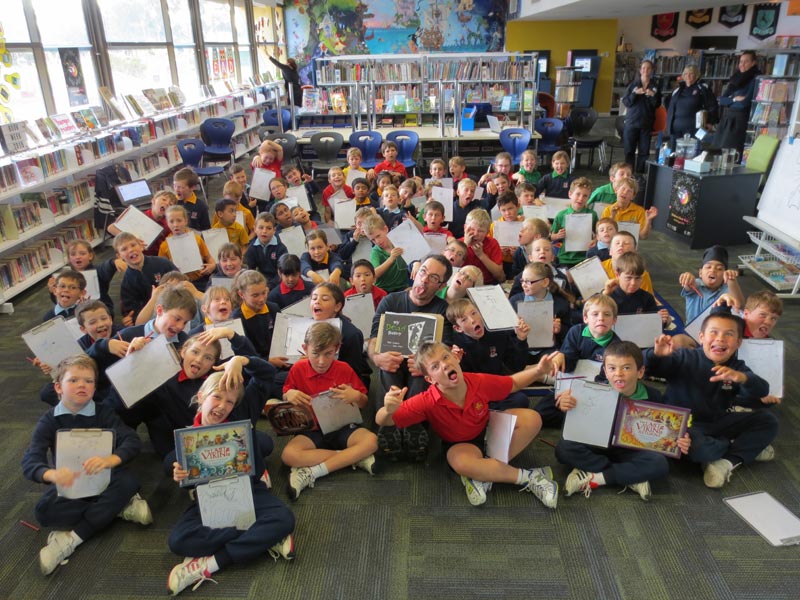
Things to consider when inviting an author
“Bookings for CBCA Book Week can start to come in at least 12 months in advance, so it’s best to plan ahead and contact authors and illustrators very early,” cautions James.
“Many schools want us to visit in Book Week only, but that’s only five days and they can book out quickly. We are more than happy to visit at other times, so if your school is willing to be flexible with timing you may have more luck landing a booking.”
Related article: How to organise an author talk in your school

